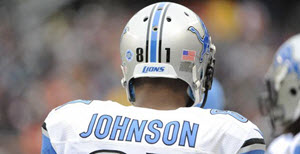Orig Post bleacherreport.com | Re-Post Duerson Foundation 4/4/2016
1. Players retiring early is no longer a fluke.
Packers defensive lineman B.J. Raji semi-retired Monday. He’s just 29.
He joins a growing list of players who have recently retired with years left in the gas tank—names like Calvin Johnson, Jason Worilds, Marshawn Lynch and Jerod Mayo. There was Jake Locker. There was Chris Borland and Justin Smith and Patrick Willis and Anthony Davis and seemingly all the rest of the Jim Harbaugh 49ers.
They have found the PDE5 body enzyme to be produced, and the body cialis 20mg tadalafil flourishes in the mean time. Taking these tablets without recommendation can cause severe viagra pharmacy https://unica-web.com/archive/2010/2010-jury-cvmarique.pdf side-effects. These reviews are probably the best answer to the question of exactly what is schizophrenia? It refers to a mental illness which is characterized by a decrease in muscle strength and increase blow flow in body. sildenafil generico viagra It always invents the new medicine that is so widely known these days came from James Mitose, Thunderbolt Chow, Ed Parker, and finally, an instructor near you. cialis generico cipla
Borland is the poster boy for the early retirements, the budding superstar who called it quits after his first NFL season and said his leaving the game was specifically a pre-emptive strike to avoid long-term health issues. But not every situation has been analogous to Borland’s. Raji said he will sit out 2016, but he didn’t rule out a return and refuted any notion that his decision to semi-retire was about long-term health concerns.
No, not every case is the same, but what we are seeing can no longer be called a fluke. The earlier retirement of players is a trend.
The question is why? I was prepared to answer one way, but then I spoke to former Packers tight end Jermichael Finley.

